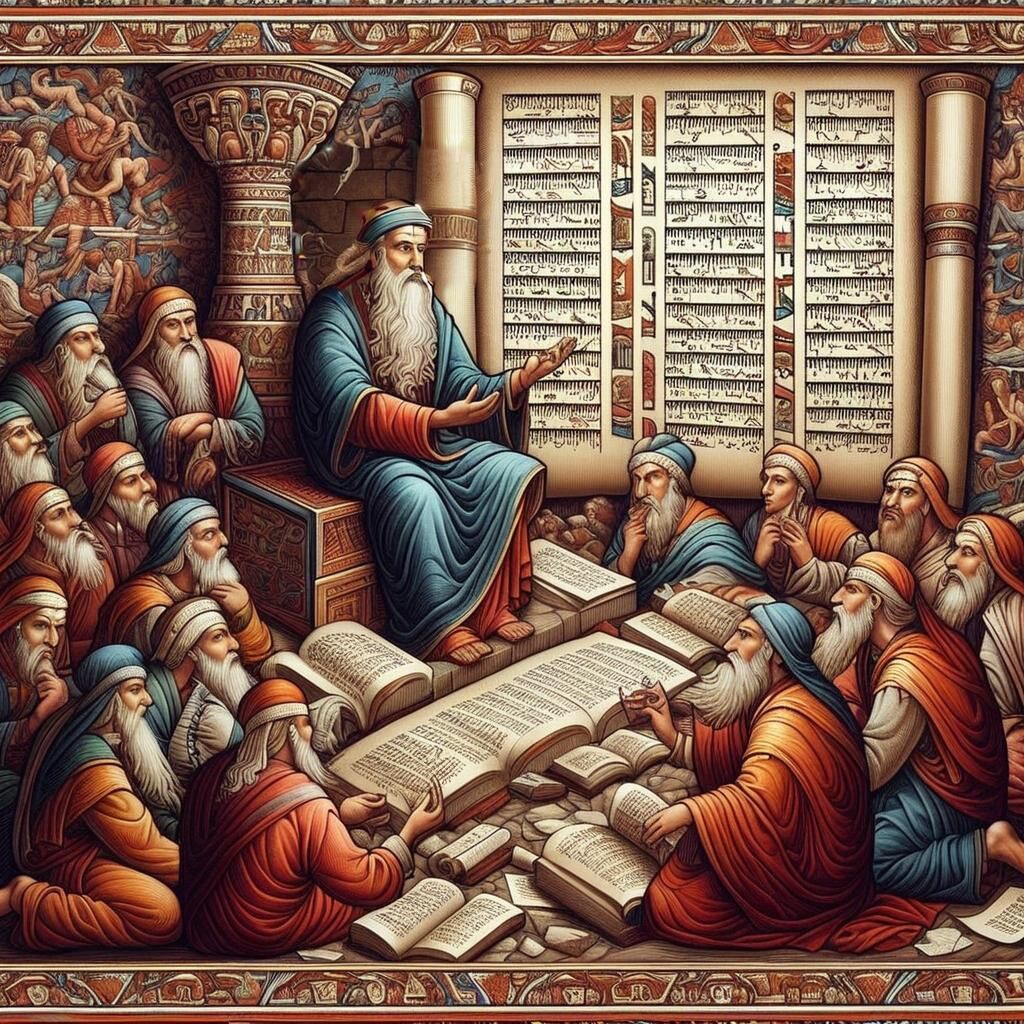Greetings, saints of the Most High! Welcome to another installment of the Messianic Torah Observer. Today, we delve into the intriguing topic of our Melchizedekian Priestly Pedigree, focusing on Jasher’s hidden chronicles.
In Part 3, we explored the theological implications of the Avram-Melchizedek encounter, discussing the dual offices of priesthood and kingship, the blessing conferred upon Avram, the significance of tithing, and the mysterious nature of Melchizedek. We also examined various religious perspectives on Melchizedek, including those from Catholicism, Islam, and Messianic Judaism.
Jewish legend and tradition often identify Shem, Noah’s righteous son, as Avram’s Melchizedek. However, there are several issues with this theory, including the lack of canonical biblical evidence and the improbability of Shem’s lifespan overlapping with Avram’s. Despite these concerns, the book of Jasher perpetuates this connection, presenting a narrative where Shem is indeed Avram’s Melchizedek.
Jasher’s account embellishes the biblical story, referring to Melchizedek as Adonizedek and describing a community meeting with Avram, bearing bread and wine. Interestingly, Jasher omits Melchizedek’s blessing of Yehovah, a curious detail given some ancient rabbinic opinions.
The narrative continues with Shem passing his prophecy school to Eber, his great-grandson, while the Melchizedekian priesthood is conferred upon Avram. This lineage, according to Jasher, includes notable figures like Adam, Enoch, and Noah, culminating in Avram.
However, the Jasher narrative raises questions about the authenticity and accuracy of these accounts. The Melchizedekian priesthood, as described in the Torah, operates outside biological heritage lines and temple sacrificial systems, foreshadowing the Spirit and Truth worship Yeshua spoke of.
Despite the conflicts between Jasher’s and the Torah’s accounts, we can glean significant insights into our Melchizedekian priestly pedigree. Concepts of righteousness, priestly conduct, obedience, and steadfast commitment to the faith form the foundation of our priestly calling. As students of Yahoshua’s Great School of Prophecy, we are in a season of training and preparation for our future roles in the Kingdom of Yehovah.
In conclusion, while I have my reservations about Jasher’s account, it offers valuable lessons about the godly elements that make up our Melchizedekian priestly pedigree. As we continue this series, we will explore these elements further, preparing us to serve as Melchizedekian kings and priests in the coming Kingdom of Yah.
May you be most blessed, fellow saints in training. Let us embrace our calling and prepare for the roles we are destined to fulfill.
Biblical Illiteracy Behind the Anti-Hebrew Roots Agenda
Is Biblical Illiteracy behind the Anti-Hebrew Roots Agenda these days. In this post I reflect upon a recent experience I had on Facebook that suggested to me that Biblical Illiteracy may, in part, be behind the animus Christians have towards our Hebrew Roots/Messianic...
A Call for Unity in the Body of Christ/Messiah
By virtue of our role as disciples of Yahoshua Messiah (Jesus Christ), we are called to be a united and unified body of believers in every respect. Just as Master was united with His Father, we too must be united with the Father, our Master and with one...
When Tradition Eclipses Torah
My Torah Portion Observation of the Week I was profoundly moved by the section of this week’s Torah portion that recorded what on the surface seemed the very harsh and violent encounter we had with YHVH. It was Parashah 26: Sh’mini, Eight and I wish to briefly...
Day of Firstfruits and Keeping the Sabbath Holy
Keeping the Day of Firstfruits The Day of Firstfruits is a little known or publicized feast in our Faith Community. Firstfruits is also referred to as Yom haBikkurim (Hebrew) and the Wave Sheaf Offering. It is sandwiched into the week of...
Our First Passover–A Survey of Exodus 12 and 13 and How it Applies to Us Today
Passover Like All Feasts are Shadows of “Good Things to Come” Passover and the Feast of Unleavened Bread, embodied and explained to us in Father's Torah, was aptly described by the writer of the Book of Hebrews as "Shadows of Good Things to Come:"...
Select Your Passover Lamb
I'm Reminded I’m reminded when looking over our copy of the Hebrew Observational Calendar that today is the day that we would select the unblemished animal of the first-year that would serve as our paschal lamb. Choosing a Lamb Today Certainly, today, the vast...
Observing and Guarding the Month of Aviv–How to Observe and Guard the Month of Aviv
Torah Instruction to Guard In Deuteronomy 16:1-3 Abba instructed us to “observe (i.e., shamar—guard) the Month of the Aviv,” and keep the Passover unto YHVH our Elohim.” Because in the Month of the Aviv YHVH brought us forth out of Egypt by night. What...
Torah Portions and the Body of Christ (Messiah)
My Love and Concern of Torah Portions I personally love the Torah Portions system for a number of reasons, including reasons associated with connecting with other like-minded Messianic believers who appreciate the Torah Portion system as well. Certainly, there are few...
All Things Are Lawful For Me
"All Things Are Lawful For Me..." (The Apostle Paul to the Corinthian Assembly of Messianic Believers) Well, I’m going to take a slight break from our series on the plurality of the Godhead series to tackle one of the Apostle Paul’s many difficult passages that the...
Are the Father and Son the Same Person (Part 2)–Genesis 1 and Elohim Proof in the Trinity or Not
The question has been posed countless times: Are the Father and the Son one and the same Person? In this second part of the series we reflect on Genesis chapter one, specifically the term/title Elohim in our search for an answer to this question. Pluralists contend...

